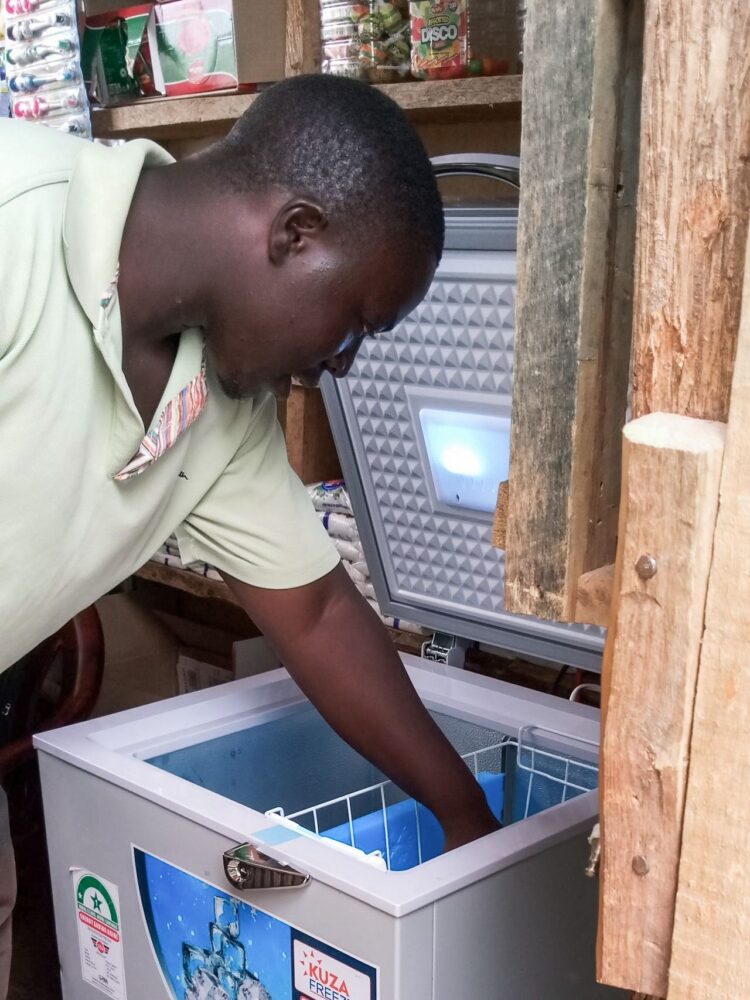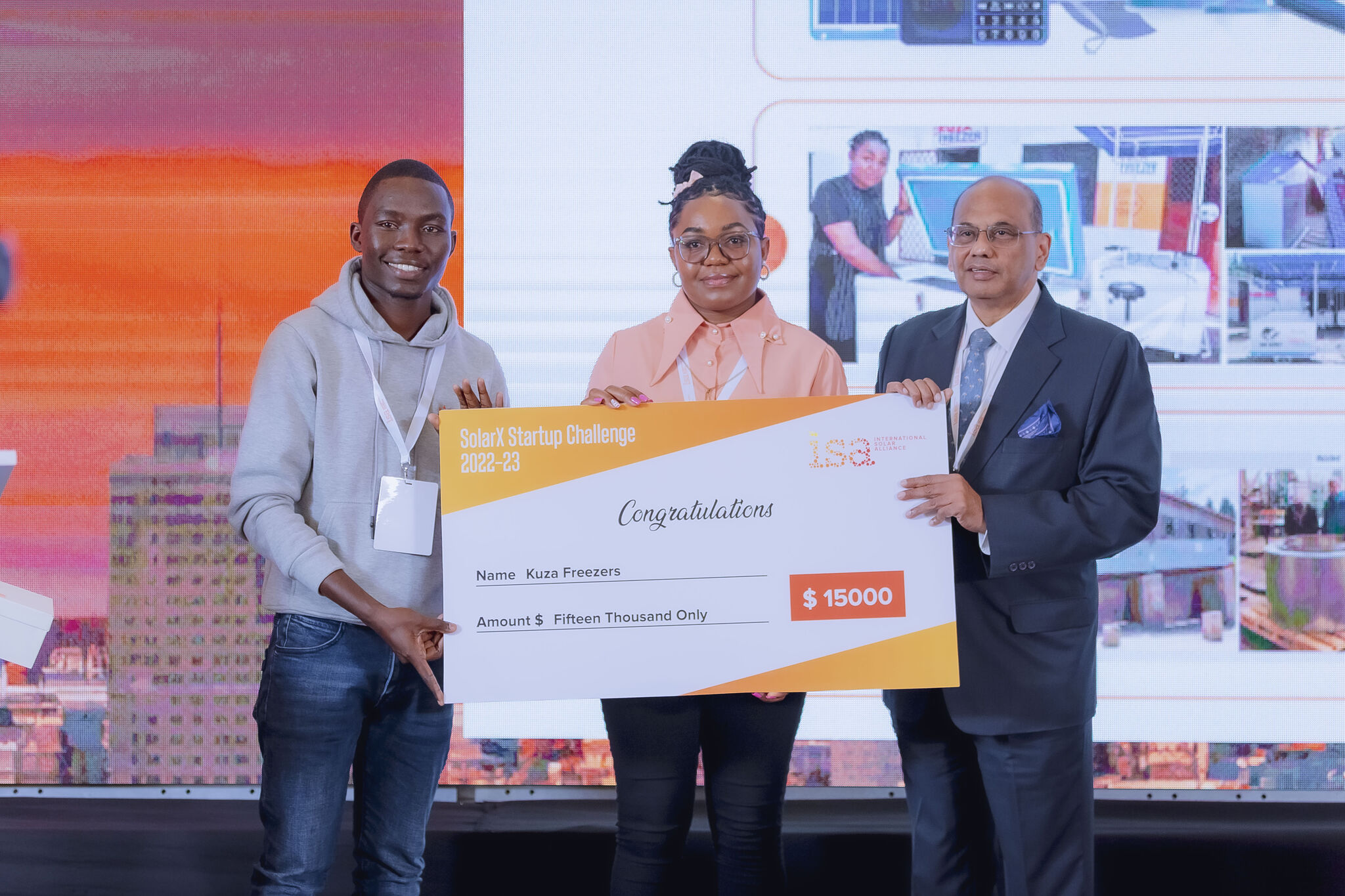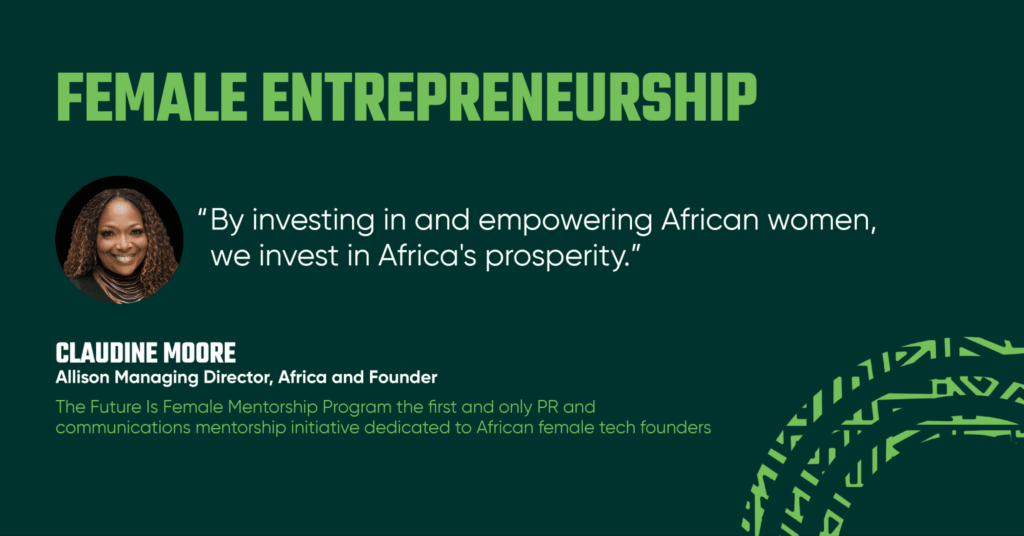Kuza Freezer, a Kenyan cleantech startup, recently emerged victorious in the prestigious SolarX Startup Challenge organized by the International Solar Alliance (ISA), scooping $15,000.
The firm was among 20 other startups from selected 10 African countries like Nigeria, Rwanda and Uganda.
Founder and Chief Executive Officer (CEO), Dennis Onkangi speaking about the venture said, “Kuza Freezer is nothing short of a game-changer, addressing a critical need in the fishing industry by providing affordable and sustainable cold storage solutions powered by solar energy. This innovative approach not only addresses the challenges faced by small-scale businesses but also aligns with the broader goal of promoting sustainable and eco-friendly practices.”
The venture, which is situated in Bamburi, Mombasa County, has scooped awards like the Inuka Pitch Competition, 2021 by Somo Africa; Best Pitcher Award by BlueInvest Africa, Seychelles in 2022; Best Food Security Solution at the Connected Summit in 2022.

Other accolades include Blue Hack hackathon in 2022 and Mombasa Business Awards, in 2022.
Also, Mr Onkangi is among a crew of nine (9) founders from Sote Hub, a Kenyan Startup Hub based in Mombasa, who will be visiting to explore the Berlin startup ecosystem, a tour that will be facilitated by Westerwelle Foundation.
In a recent interview with TechMoran, Mr Onkangi delves into the success of Kuza freezer:
1. Can you tell us more about the inspiration behind Kuza Freezer and its mission to bridge the cold-chain gap for small-scale fishers in Kenya?
The inspiration behind developing the Kuza Freezer solution stemmed from a deep sense of empathy and a desire to make a positive impact on the lives of small-scale businesses in the fish value and supply chain.
As I observed the challenges faced by these businesses, particularly in regions with limited access to electricity and refrigeration, I felt a strong motivation to create a practical and sustainable solution.
The geography of my focus lies in coastal areas, islands, and remote regions, where fishing is not only a livelihood but also a vital source of sustenance for communities.
Witnessing the struggles these communities faced in curbing post-harvest losses and improving their income compelled me to take action.
The target market and community were at the forefront of my considerations. Small-scale fishermen, local fish processors, and community cooperatives formed the core of the Kuza Freezer’s audience.
These hardworking individuals and organizations often lacked the financial means to invest in traditional refrigeration equipment, leaving them vulnerable to significant post-harvest losses. I believe that by providing an accessible pay-as-yo-go (PAYG) and solar-powered freezer solution, we could empower these businesses to thrive sustainably.
2. How did the idea of providing solar-powered cold storage solutions for artisanal fisheries come about? What was the driving force behind this innovative approach?
The idea was born out of a recognition of the pressing challenges faced by small-scale fishers and a commitment to finding innovative solutions. Several driving forces contributed to this innovative approach:
Post-Harvest Losses: One of the primary drivers was the significant post-harvest losses experienced by small-scale fishers. It was evident that traditional methods of fish preservation, such as relying on ice or inefficient cooling, were resulting in substantial economic losses for these communities. The need to reduce these losses and improve the income of fishers became a compelling motivation.
Environmental Sustainability: Another driving force was a concern for the environmental impact of traditional cold storage methods, which often relied on fossil fuels or had high energy consumption. The desire to develop a more environmentally sustainable solution using renewable energy sources, like solar power, aligned with the growing global awareness of climate change and the need for eco-friendly technologies.
Access to Technology: Access to modern technology is often limited in the regions where small-scale fishers operate, particularly in off-grid and remote areas. Recognizing the potential for solar power to provide a reliable energy source even in such environments, the idea of using solar-powered cold storage units emerged as a way to bridge the technology gap and empower these communities.
Empowering Small-Scale Businesses: The driving force behind this approach was also the belief in the power of entrepreneurship and innovation to uplift small-scale businesses. Providing fishers with affordable, sustainable, and efficient cold storage solutions could significantly enhance their economic prospects and overall livelihoods.
Social Impact: The desire to make a positive social impact and contribute to poverty alleviation in communities reliant on artisanal fisheries was a driving force. By reducing post-harvest losses and increasing income for small-scale fishers, the project aimed to improve the quality of life for these individuals and their families.
3. Could you elaborate on the challenges that small-scale fishers face in terms of post-harvest fish losses and the lack of access to reliable cold storage services?
Small-scale fishers confront significant challenges related to post-harvest fish losses, with rates that can soar as high as 45%. One of the primary obstacles they encounter is inadequate storage infrastructure.
Many small-scale fishers operate in remote coastal or rural areas where reliable cold storage facilities are scarce or completely absent. This absence of proper storage means that once the catch is harvested, they must rely on less effective preservation methods like ice or traditional cooling techniques.
These methods are often insufficient, particularly in regions with high ambient temperatures, leading to rapid spoilage and quality degradation of the fish. As a result, a substantial portion of the catch is lost before it reaches consumers or markets, translating into economic losses for the fishers and reduced food availability for local communities.
Another critical challenge is the lack of access to reliable cold-storage services, especially for off-grid communities. In many cases, these small-scale fishers are situated in areas with limited or no access to electricity or modern refrigeration technology.
The cost of establishing and maintaining cold storage facilities, along with the ongoing energy requirements, can be prohibitively high for these off-grid communities. This lack of access to cold storage not only contributes to post-harvest losses but also hampers the fishers’ ability to take advantage of higher-value markets, as they are often unable to store and transport their catch over longer distances.
Consequently, small-scale fishers in off-grid areas face a persistent struggle to minimize post-harvest fish losses and access broader market opportunities, further impacting their economic well-being and food security.
4. What specific impacts have Kuza Freezer’s solar-powered cold storage units had on the livelihoods of small-scale fishers? Could you provide any success stories or case studies?
Up to this point, we have successfully delivered more than 350 units across Kenya, thereby empowering over 2,600 small-scale enterprises.
Remarkably, 60% of our clientele comprises women engaged in various aspects of the fish value chain. Our cold storage innovations have led to a substantial 60% increase in income for these fish vendors, resulting in a direct enhancement of their overall quality of life.
5. The introduction of your products seems to have a significant environmental impact. How did you come up with the idea of combining sustainable solutions with addressing a pressing social issue?
The genesis of our concept, which marries sustainable solutions with the resolution of a pressing social issue, stemmed from a profound commitment to making a positive difference in the lives of small-scale businesses operating in the fish value chain.
We recognized that these businesses faced not only economic challenges but also grappled with environmental issues due to inefficient cold storage practices.
Our inspiration to develop solar-powered freezers was driven by the urgent need to minimize post-harvest losses, a critical problem faced by small-scale fishers and vendors.
As we delved deeper into this issue, it became apparent that traditional ice-based storage methods were not only economically burdensome but also detrimental to the environment due to excessive energy consumption and waste generation.
Hence, we embarked on a journey to create a sustainable and innovative solution that would not only boost the income of these businesses but also lessen their environmental footprint.
By harnessing the power of solar energy, we aimed to provide cost-effective, eco-friendly cold storage options to these communities, aligning our commitment to social empowerment with responsible environmental stewardship.
Our goal has been to create a win-win situation, where the livelihoods of small-scale businesses thrive, and the planet benefits from reduced energy consumption and waste generation.
6. Can you share more about the product offerings of Kuza Freezer, such as the range of solar-powered freezers, mobile cold boxes, and last-mile delivery solutions? How are these tailored to the needs of different fishers?
Kuza Freezer provides a variety of solar freezer options to cater to different needs. Our product range includes solar freezers designed for domestic use, ranging from 100 litres to 150 litres in capacity. Additionally, we offer mobile units with a 60-litre capacity, ideal for the last-mile distribution of fresh fish.
Our product lineup is carefully crafted to address the specific requirements of fishermen who often need a reliable solution for storing their catch while awaiting buyers. The mobile units serve a crucial role by enabling them to transport their fish to market centres in towns, ensuring convenient access to ready markets for their products.
7. Building and distributing products like solar-powered freezers and cold boxes would require funding and resources. Could you shed some light on how Kuza Freezer has been funded and how you’ve managed to scale up your operations?
Our primary avenues for acquiring funding and resources at Kuza Freezer have primarily been substantial equity investments, complemented by financial aid provided in the form of cash awards.
These sources have allowed us to expand our business operations. Nonetheless, we are currently in the process of seeking additional funding to further enhance the scalability of our manufacturing processes.
8. With regards to the advisory board and partners you’ve mentioned, how have they contributed to the success of Kuza Freezer’s mission and operations?
Our advisory board and partners have been instrumental in the growth of our business, particularly in securing additional funding and advancing product development to enhance the quality of our offerings. They have also played a crucial role in safeguarding our intellectual property and in the establishment of strategic partnerships.
9. Recognitions and awards often reflect the impact and innovation of a company. Could you discuss how these accolades, such as the Top40Under40 Kenya and Global Young Entrepreneur of the Year (in 2023 and 2023 respectively), have motivated and validated your team’s efforts?
Kuza Freezer has earned numerous accolades and recognitions, including a notable victory in the SolarX startup challenge organized by the International Solar Alliance. Additionally, we have received esteemed honours such as the Top 40 Under 40 Kenya and the Global Young Entrepreneur of the Year awards, among others.
These prestigious awards and acknowledgements have played a pivotal role in facilitating the establishment of partnerships, both on a local and international scale. Consequently, our business operations have expanded, and our market outreach has grown significantly. Furthermore, these achievements have instilled a heightened level of confidence and trust among our potential customers.
10. Could you share your vision for the future of Kuza Freezer? What are your plans for expanding your impact in Kenya and beyond, and how do you envision the company’s growth trajectory?
Kuza Freezer’s vision is to extend our business footprint throughout East Africa, to create a beneficial influence on the livelihoods of countless small-scale businesses involved in the fish value and supply chain, thanks to our pioneering cold storage solutions.
Our strategy involves the establishment of distribution centres across the entire nation to improve both access and availability of our products. Furthermore, as a part of our approach, we plan to cultivate collaborations with prospective microfinance institutions. This partnership aims to facilitate the expansion of our Pay-As-You-Go (PAYG) model, ensuring that an even broader spectrum of individuals can access and benefit from our offerings.
11. In terms of the economic and social impact of Kuza Freezer, could you provide more details about the increase in income for fish farmers and the reduction in ice costs? How has this translated into tangible improvements for the communities you serve?
Kuza Freezer’s cold storage solutions have had a profound economic and social impact on small-scale businesses within the fish value and supply chain. These solutions have resulted in a remarkable 60% increase in income for farmers and vendors.
By utilizing Kuza Freezer’s cold storage units, these businesses can extend the preservation of their catch, which, in turn, significantly reduces post-harvest losses. This, combined with improved product quality and an extended shelf life, empowers them to command higher prices in the market.
Consequently, numerous individuals engaged in fishing have witnessed a substantial income surge of up to 60%, directly enhancing their overall livelihoods. This positive financial transformation enables them to better support their families, reinvest in their enterprises, and elevate their living standards.
Moreover, traditional methods of storing fish using ice can impose significant financial burdens on small-scale fishers. The need to acquire substantial quantities of ice to preserve their catch can be cost-prohibitive.
Kuza Freezer’s cold storage solutions eliminate the necessity for excessive ice, resulting in substantial cost reductions. This reduction in ice-related expenses directly benefits fisherfolks by lowering their operational costs and bolstering their profit margins. Furthermore, it contributes to the sustainability of their businesses by enhancing their long-term economic viability.
12. Given the ongoing growth of the company, can you talk about any upcoming projects, partnerships, or initiatives that Kuza Freezer is working on or planning to launch?
Our company is dedicated to providing innovative solutions that effectively address post-harvest losses and uplift livelihoods.
Our strategic vision includes scaling our operations and expanding our portfolio to offer a diverse range of innovative and climate-smart solutions.
This comprehensive approach aims to empower our target market, making them both resilient to climate challenges and economically prosperous.
13. Sustainability is a key focus for Kuza Freezer. How do you ensure the sustainability of your products and operations, both in terms of environmental impact and the company’s long-term viability?
Ensuring sustainability, both in terms of environmental impact and the long-term viability of our products and operations, is a central focus at Kuza Freezer. Here are some of the key strategies and practices we employ to achieve sustainability:
Environmental Impact:
Solar-Powered Technology: Our solar-powered PAYG freezers are designed to run on clean and renewable solar energy, reducing reliance on fossil fuels and minimizing greenhouse gas emissions.
Energy Efficiency: We continuously strive to enhance the energy efficiency of our freezers, making them more environmentally friendly. This includes optimizing insulation and cooling systems.
Supply Chain Sustainability: We work with suppliers and partners who share our commitment to sustainability. This includes evaluating their environmental practices and ethical standards.
Long-Term Viability:
Business Model: Our Pay-As-You-Go (PAYG) model ensures the long-term viability of our business. It allows customers to access our products affordably while generating recurring revenue for us, which supports ongoing operations and innovation.
Partnerships: We collaborate with microfinance institutions and other partners to make our products accessible to a broader customer base. These partnerships expand our reach and contribute to financial sustainability.
Research and Development: We invest in ongoing research and development to improve our products and stay ahead of technological advancements. This innovation not only enhances our competitiveness but also ensures the relevance and longevity of our solutions.
Customer Support: Providing excellent customer support, including maintenance and after-sales service, helps build trust and encourages customer loyalty, contributing to the long-term success of our business.
Diversification: We explore opportunities for diversification, such as expanding our product range to meet evolving customer needs within the fish value chain and related sectors.
Community Engagement:
Training and Education: We actively engage with our customers and provide training on the proper use and maintenance of our products. Educated users are more likely to maximize the benefits of our technology.
Local Impact: We aim to positively impact the communities where we operate by creating jobs, providing access to affordable technology, and supporting economic growth.
14. Could you provide insights into the challenges you’ve faced along the way, whether they were related to technology, market adoption, or any other aspect of your business model?
Some of the challenges we have faced as a startup are as follows:-
Technological Innovation: Developing and refining our solar-powered PAYG freezers required significant technological innovation. We had to overcome engineering challenges to create efficient and reliable systems that could work effectively in off-grid and remote areas.
This involved designing robust energy storage solutions and ensuring the freezers could withstand various environmental conditions.
Market Adoption: Convincing small-scale fishers and businesses to adopt our technology was a challenge. Many were accustomed to traditional methods of fish preservation and were initially hesitant to switch to new and unfamiliar technology. Building trust and demonstrating the benefits of our solution took time and effort.
Financial Accessibility: Affordability is a significant concern for our target market. While our PAYG model offers flexibility, some customers still face financial constraints. Finding ways to make our technology accessible to those with limited resources, such as through partnerships with microfinance institutions, has been a key challenge.
Infrastructure and Logistics: Establishing distribution networks, especially in remote areas, presented logistical challenges. Ensuring a steady supply of our freezers, providing maintenance support, and managing spare parts in areas with limited infrastructure required careful planning.
Regulatory and Policy Barriers: Navigating regulatory and policy frameworks, especially when introducing innovative technologies, can be complex. Ensuring compliance with relevant regulations while advocating for favourable policies to support our initiatives has been an ongoing challenge.
Customer Education: Educating our customers about the benefits and proper use of our technology was essential. We had to develop training programs and materials to empower users with the knowledge to maximize the benefits of our freezers.
15. As the CEO of Kuza Freezer, what has been your motivation and journey in leading a startup that has such a profound social and environmental impact?
My motivation for leading Kuza Freezer has been driven by a strong commitment to social impact, environmental sustainability, and entrepreneurship. The journey has been filled with challenges, but the opportunity to positively affect the lives of small-scale businesses and contribute to a more sustainable world has been immensely fulfilling.








